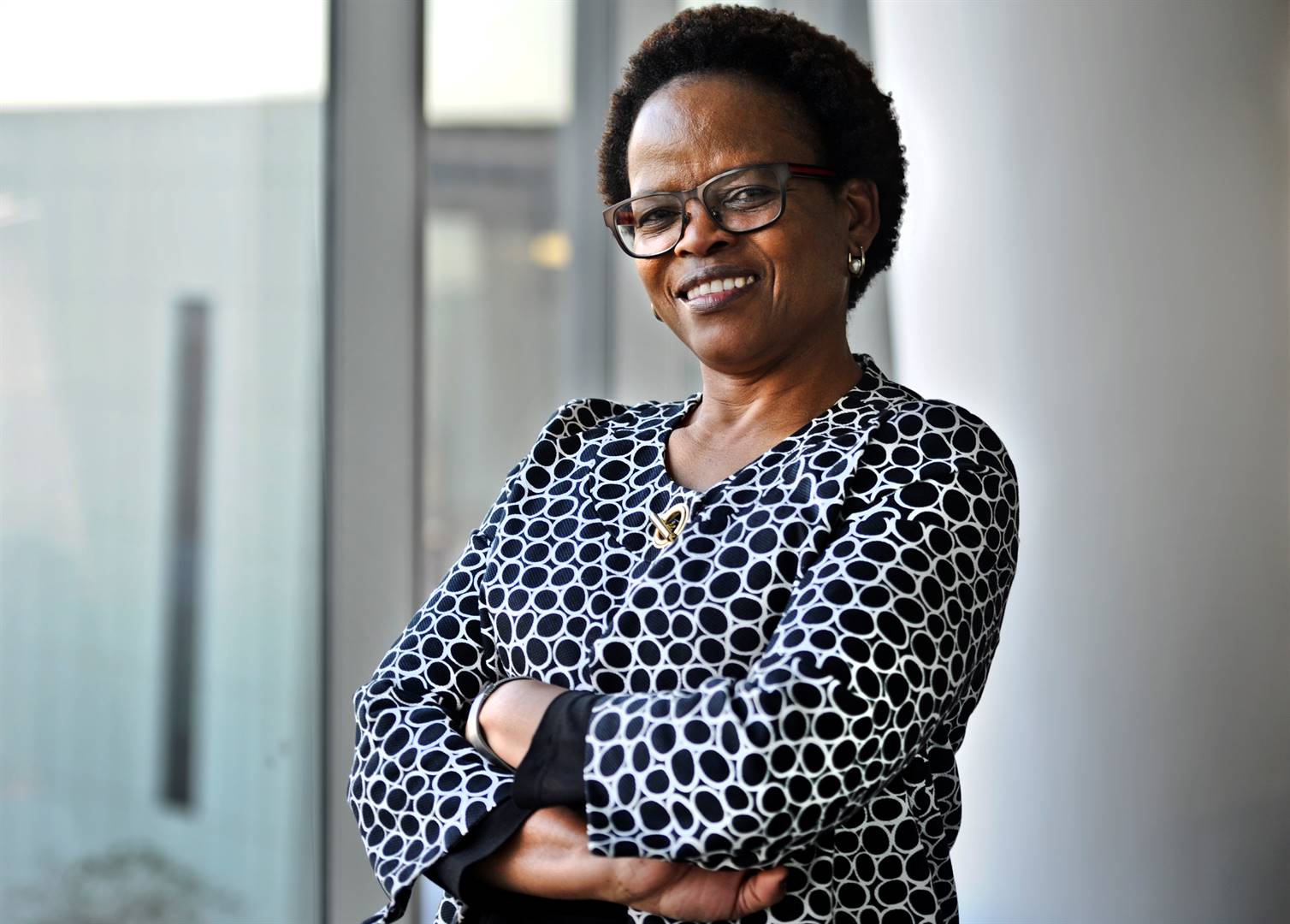
The new CEO of PwC has a strong work ethic and wants to leave behind a legacy of excellence
The newly appointed CEO of PwC, Shirley Machaba, has earned her place at the main table in the auditing world.
City Press met up with the Soweto-born executive at the company’s headquarters in Midrand recently, and saw first-hand why PwC Southern Africa’s first black woman chief is the right person for the job.
Machaba was born in Jabavu in Soweto, where she lived with her grandmother and siblings. She started her schooling journey at Jabavu Primary School, but she spent the better part of her young life in Limpopo, moving to Vhulaudzi Secondary School in Tshitavha village in Venda.
“My mother is Venda and my father is Pedi – that’s why I can speak almost all the black languages in the country, except isiXhosa, because, in Soweto, we spoke everything,” she said, adding that the period she spent in Soweto made her very independent as she took care of her siblings while staying with her grandmother.
Her father was a teacher and her mother was a professional nurse, so Machaba was bound to end up in a formal profession and her first choice was medicine.
“I really admired the doctors who worked with my mother when she was a nurse at Nkhensani Hospital [in Giyani].
“But when I went to the University of Venda to register for the bachelor of science degree, which was an entry into medicine, I was in the queue and was told they had reached the quota and were not accepting more students.
“So I opted for a bachelor of commerce in accounting and, because I didn’t do accounting at high school, I failed all the courses in the first semester,” she said.
It was after that rude awakening that she adopted a business-like approach to her academic goals, an approach that bore fruit as she went on to graduate in record time – and it’s an approach she has stuck to ever since.
“I still wake up very early and maintain the same work discipline,” she said.
After graduating, she went on to register for an honours degree on a part-time basis at the same university while working as a junior internal auditor at the Auditor-General’s office.
She also took on a part-time job after hours as a lecturer at the University of Venda.
“I really didn’t even enjoy lecturing. I lectured two classes after work and I found out then that I was never going to be in that field,” she said.
However, after completing her honours degrees, she went on to enrol at Unisa for a postgraduate diploma in higher education.
“When I was a part-time lecturer, one of my professors at university, Professor Viljoen, convinced me to go for chartered accountancy. It was not hard to convince me, even though I didn’t know any black chartered accountants at the time,” she said, relating the turning point in her career path.
“While I was doing my certified theory of accounting, which is tough, the Auditor-General’s office transferred me to Pretoria to finish off my articles with Coopers & Lybrand [now called PwC],” she said.
Her performance at Coopers & Lybrand was so impressive that the company wanted to keep her, but the Auditor-General’s office refused because the transfer was made so that she could be trained for the remainder of her articles period only.
It was at Coopers & Lybrand that she was first exposed to auditing major clients, including central banks across the continent.
After finishing her articles in 1998, her time back at the Auditor-General’s office was limited and, nine months later, she joined the department of justice as the inaugural head of internal audit.
“The internal audit unit was not there before, so I had to start it from scratch and I learnt a lot about leadership. During the four and half years I spent there, I was very proud of the things I achieved. When I left the department, we had a clean audit,” she said.
After her stint in government, she was headhunted by PwC and was one of 10 black women appointed as partners at the time, which broke new ground at the firm.
“That year, I had several offers, so I chose to go with PwC because it was closest to my heart. I joined as an associate partner and have been there ever since,” she said.
After being made a partner at PwC’s assurance services division in 2005, she had the opportunity to serve in different capacities and sat on a number of committees.
“I have been fortunate to lead a number of portfolios and had various roles in the organisation,” she said, adding that she loved her roles of dealing with governance risk and being internal audit head the most.
Regarding the state of the sector that has faced a barrage of backlash for unethical and corrupt relationships with clients, Machaba admitted that the industry had been tainted, but what happened to KPMG, which has been the biggest firm implicated so far, could have happened to any of the big four firms.
“At PwC Southern Africa, we have more than 288 partners. Seated here, I don’t know what each of them is doing, but the comfort I find is that we have very stringent risk management processes and, based on the lessons we learnt from what was happening in other firms, we had to make our processes even tighter,” Machaba said.
She said the firm had also tweaked and fastened some of the processes relating to the acceptance of client mandates, and it internally inspects all of them.
“I am one person who wants to leave a legacy, and my vision right now is to ensure that this company is the undisputed number one in terms of quality clients and quality people who are also digitally fit.”
When not bossing boardrooms, the religious executive is an ardent runner, and loves listening to music and watching movies.
 |
| ||||||||||||
| |||||||||||||




 Publications
Publications
 Partners
Partners








